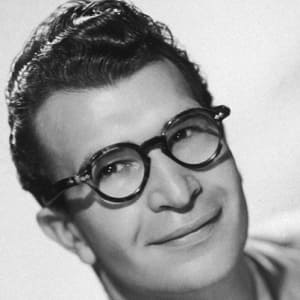
William Manchester
William Manchester was a historian who notably wrote about American President John F. Kennedy and British Prime Minister Winston Churchill.
Synopsis
Born on April 1, 1922, in Attleboro, Massachusetts, William Manchester was a noted writer whose major work, The Death of a President (1967), about John F. Kennedy, earned him considerable praise and criticism. The author of several histories, Manchester died on June 1, 2004, in Middletown, Connecticut, before he could complete the third and final volume of his biography of Winston Churchill.
Early Years
William Raymond Manchester Jr. was born on April 1, 1922, in Attleboro, Massachusetts. Manchester spent the early part of his childhood battling health issues that forced him to spend considerable time indoors. As a result, he became an avid reader and eventually a prolific writer. Manchester penned his first poems at the age of 7, and by 11 was churning out short stories.
Following his father's death, the family moved to Springfield, Massachusetts, where Manchester graduated from Classical High School in 1940. That fall, he enrolled at the University of Massachusetts, where he joined the swim team and majored in English. He interrupted his studies in 1942 to follow a family tradition and join the Marines. Manchester fought in the Pacific War, where he was nearly mortally wounded, and earned a Purple Heart.
It was during his recovery that Manchester met another injured American military man: John F. Kennedy. It was the start of a friendship what would span the next two decades, until the president's assassination in Dallas, Texas, on November 22, 1963.
Following his discharge, Manchester returned to the University of Massachusetts, where he completed his English degree and graduated first in his class in 1946. A master's from the University of Missouri followed, as well as his marriage to Julia Marshall in 1948.
Manchester then spent several years working as a newspaper reporter before he took a job as a secretary for writer, H. L. Mencken, who was the subject of Manchester's master's thesis. With his mentor's encouragement, Manchester tried his hand at writing books, and over the next decade he churned out a series of fiction titles. In 1959, he published his first nonfiction book, A Rockefeller Family Portrait.
Kennedy Connection
Maintaining his close ties to Kennedy, Manchester became a frequent visitor to the Kennedy family compound in Hyannis Port, Massachusetts. In 1962, he published Portrait of a President: John F. Kennedy in Profile, which was panned by some critics for its overly adoring tone.
In the wake of Kennedy's assassination, Manchester was the obvious choice of the former First Lady, Jacqueline Kennedy, to write about the tragedy. However, the easy relationship between the writer and the Kennedy family quickly soured when Jackie started fearing that Manchester would write too honestly about her contempt for President Lyndon B. Johnson. The animosity intensified when Look magazine offered Manchester approximately $650,000 to serialize the book, prompting JFK's widow to publicly decry the writer's commercial motives.
Manchester ended up working with the Kennedy family to make some minor edits of the book. In the end, the tension surrounding the project proved publishing gold, with Death of a President going on to sell more than 1.3 million hardcover copies after its publication in the spring of 1967. Despite being dismissed by some critics as hagiography, the book earned Manchester the coveted Dag Hammarskjold International Literary Prize. It was considered a landmark in reportage on the world-famous assassination, but has subsequently been superseded as new evidence has emerged.
Later Years
A tireless writer and researcher, Manchester's post-Kennedy career proved incredibly fruitful. His later books included The Arms of Krupp, 1587-1958 (1968); American Caesar: Douglas MacArthur 1880-1964 (1978); and the first two volumes of The Last Lion: Winston Spencer Churchill biography: Visions of Glory, 1874-1932 (1983) and Alone, 1932-1940 (1988). In addition, he authored the 1,400-page The Glory and the Dream: A Narrative History of America, 1932-1972, which was published in 1974.
For Manchester, the interest in his subjects was born out of his own interest and fascination with power.
"Power is the one thing that has fascinated me ever since I was a kid in Springfield, Mass.," he once said. "What exactly is power? Where are its roots? How do some people get it and others miss it entirely? How do they hold it or lose it?"
A series of debilitating strokes eventually diminished Manchester's ability to work, and he was forced to pass the incomplete third volume of Churchill's biography, Defender of the Realm, 1940-1965, to another writer. Manchester died at his home in Middletown, Connecticut, on June 1, 2004.




